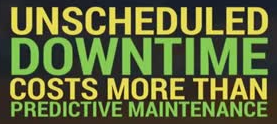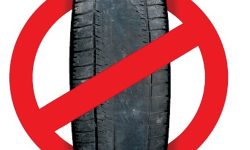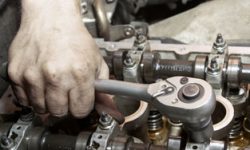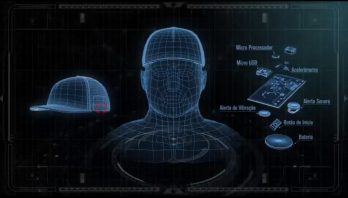When they were first deployed, they were supposed to be a hands-off, self-maintaining component that would look after itself behind the scenes with some simple cleaning procedure required sometime in the future. Things that will wreck your DPF: Power Take-Off (PTO): If your truck spends any time in PTO, like many of you guys do, then you probably experience many of the side-effects of a plugged DPF or DPF failure. Fire engines in pump operations, raising a dump truck bed, operating the mechanical arm on a bucket, crushing the garbage in a garbage truck…these are all major causes of DPF failure. The problem with PTO is that the engine is working hard, but the DPF can’t go into regen mode. The more your engine works, the dirtier your filter gets, and without a chance to regen, you end up making your engine work extra hard to push exhaust through that dirty filter. Boom! Next thing you know, your turbos blow, fuel economy tanks, power is zapped… Stop-and-Go Driving Does your route run you through heavy traffic areas? Or through congested cities? Maybe you do deliveries all through town. Red lights, brake lights, pulling over…you know the deal. Rev it up to get going, only to have to take it back down to stop. You guys probably never get much over about 35 mph during a shift until the drive back to the yard. With this type of driving, your truck probably never gets hot enough to passively regen. If you are lucky, the drive home is long enough to partially clean the filter, but chances are you are always operating with a dirty filter. And remember…a dirty filter means your engine is working harder than it should be, which means more wear-and-tear, poor fuel economy, less power… know, turbos blow, fuel economy tanks, power is zapped… Frequent Idling This is a shout-out to all you long haulers who think your DPF is clean because of your long drives…well, if you’re company isn’t flipping the bill for a hotel, then chances are when you park it for the night you keep that engine running at a nice, smooth idle. After all, nobody wants to freeze out in their cab this time of year. Well, 8 hours of idle (if your truck will actually let you) is murder on your DPF! Sure, when you hit the road in the morning, hopefully your truck will try to regen, but what you end up with is a game of cat-and-mouse, where your engine is constantly trying to catch up with your dirty filter, while your filter continues to get dirty. In case you never seen Tom and Jerry…the cat never catches the mouse.
dump truck bed, operating the mechanical arm on a bucket, crushing the garbage in a garbage truck…these are all major causes of DPF failure. The problem with PTO is that the engine is working hard, but the DPF can’t go into regen mode. The more your engine works, the dirtier your filter gets, and without a chance to regen, you end up making your engine work extra hard to push exhaust through that dirty filter. Boom! Next thing you know, your turbos blow, fuel economy tanks, power is zapped… Stop-and-Go Driving Does your route run you through heavy traffic areas? Or through congested cities? Maybe you do deliveries all through town. Red lights, brake lights, pulling over…you know the deal. Rev it up to get going, only to have to take it back down to stop. You guys probably never get much over about 35 mph during a shift until the drive back to the yard. With this type of driving, your truck probably never gets hot enough to passively regen. If you are lucky, the drive home is long enough to partially clean the filter, but chances are you are always operating with a dirty filter. And remember…a dirty filter means your engine is working harder than it should be, which means more wear-and-tear, poor fuel economy, less power… know, turbos blow, fuel economy tanks, power is zapped… Frequent Idling This is a shout-out to all you long haulers who think your DPF is clean because of your long drives…well, if you’re company isn’t flipping the bill for a hotel, then chances are when you park it for the night you keep that engine running at a nice, smooth idle. After all, nobody wants to freeze out in their cab this time of year. Well, 8 hours of idle (if your truck will actually let you) is murder on your DPF! Sure, when you hit the road in the morning, hopefully your truck will try to regen, but what you end up with is a game of cat-and-mouse, where your engine is constantly trying to catch up with your dirty filter, while your filter continues to get dirty. In case you never seen Tom and Jerry…the cat never catches the mouse.
OTHER FACTS TO CONSIDER: Match the engine size to its intended application Don’t spec’ a big-block engine to run stop-and-go all day with short runs on the highway. Choose a smaller engine with a higher power-to-displacement ratio that will generate more exhaust heat and allow more passive regeneration and increase -intervals between parked regenerations. Observe the regen cycle frequency Increasingly frequent active regens or parked regen requests could indicate the filter is becoming severely plugged. Onboard diagnostic systems are more sophisticated today and can alert you to the need for service, but older trucks can still be hit or miss. There is no harm in pulling the Diesel Particulate Filter for cleaning earlier in its life rather than later, and scheduled maintenance is always less expensive than -emergency service. Consider performing a parked regen at the beginning or end of a work shift Vehicles in light-duty, high-idle, or stop-and-go service can avoid disruptions to the workday by performing a scheduled regen rather than having to park for up to an hour during the shift. Perform regular and documented fluid level checks An internal oil or coolant leak will no longer change the color of the exhaust because of the Diesel Particulate Filter. Such contamination increases the risk of plugging the Diesel Oxidation Catalyst, which will increase back pressure. After ineffective active or even passive regenerations, the system monitors will trigger fault codes and activate dash lamps to recommend inspection. Watch fault codes The days of performing Preventive Maintenance without a computer are over. Respond to fault codes immediately and be proactive. A parked regen is a last resort, not a first warning.









1 Response